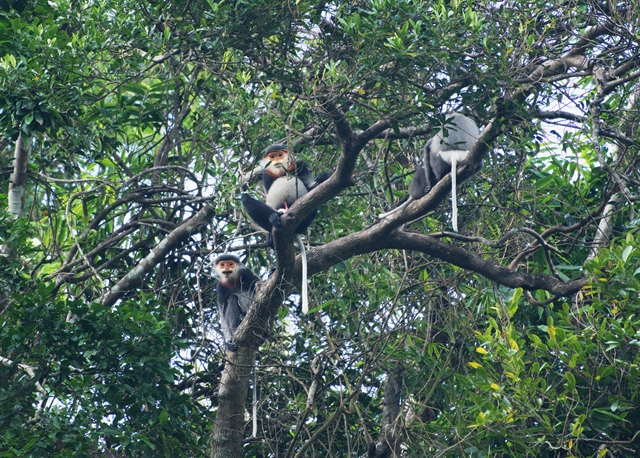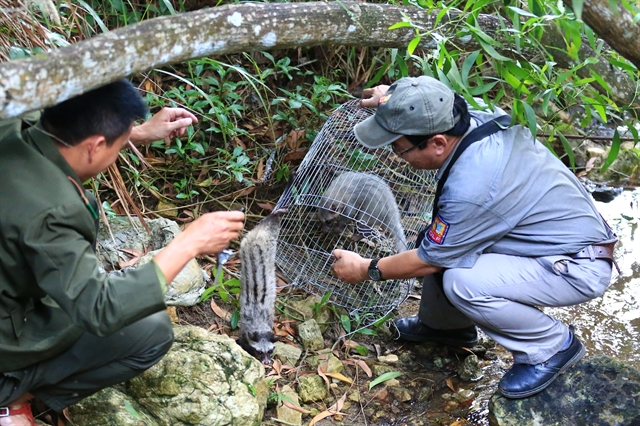 Environment
Environment


|
| Rangers and volunteers release two civets in Sơn Trà reserve in Đà Nẵng. The two animals were rescued by rangers after their mother was killed. — Photo courtesy Bùi Thanh Lang |
ĐÀ NẴNG — A wildlife rescue and conservation team in the city, with the support of the Đà Nẵng-based Douc Langur Foundation, has released two civets – an endangered species – and an Asian water monitor, in the Sơn Trà Nature Reserve.
A team member told the Việt Nam News the animals were returned to their habitat at a secret location in the jungle.
Bùi Thanh Lang, a volunteer, said the two civets were treated at the Sơn Trà-Ngũ Hành Sơn Ranger sub-department, while the lizard was captured by a family in the city.
Lang said the three animals were healthy before being returned to nature.

|
| An Asian water monitor is rescued by local rangers in Đà Nẵng. It was returned to the jungle. — Photo courtesy Bùi Thanh Lang |
This is the third time that local rangers and volunteers have released wildlife in the area.
Rapid urbanisation and illegal logging have encroached on habitats and threatened biodiversity of two nature reserves – the Bà Nà-Núi Chúa and Sơn Trà – in the city.
The 4,439ha Sơn Trà Reserve, located 600m above sea level, is home to 370 animal species and 1,010 plant species.
The reserve, 10km from Đà Nẵng, has 43 plant species listed as endangered in Việt Nam’s Red Book and the International Union for Conservation of Nature (IUCN).
More than 237 herds of the endangered red-shanked douc langurs with over 1,300 individuals are living in the Sơn Trà Nature Reserve.
Meanwhile, the 28,000ha Bà Nà-Núi Chúa, provides shelter to 626 animal species and 793 plant species, including several endangered primates such as the northern buffed-cheeked gibbon and Edwards’s pheasant, which are rarely seen in nature.
Standing 1,487m above sea level, it was initially used as a mountain resort by the French in 1912 and currently remains a tourist attraction. — VNS




